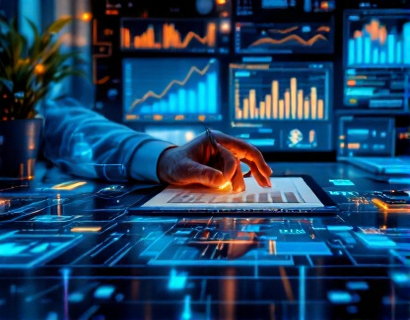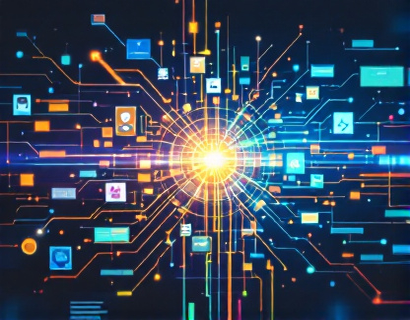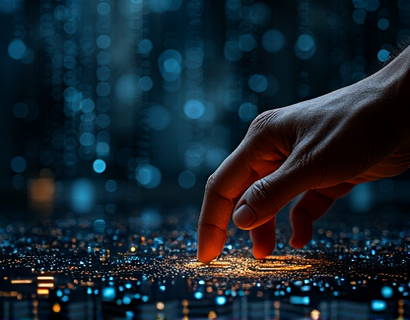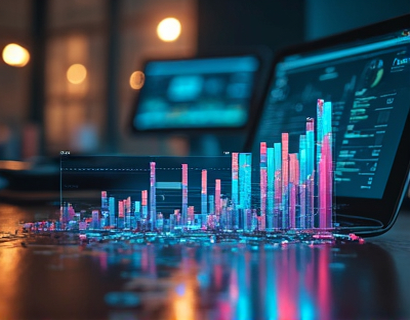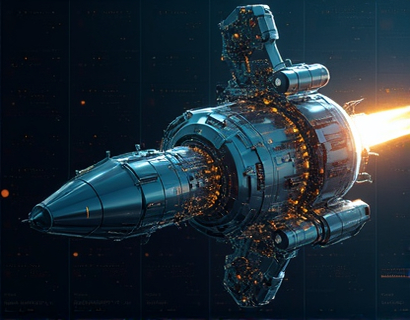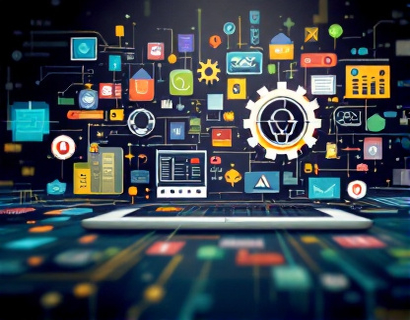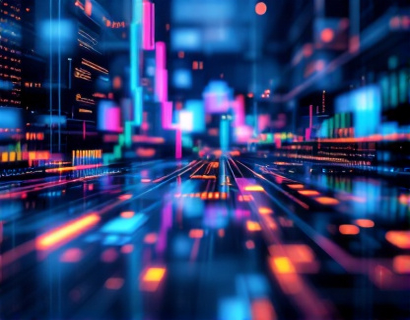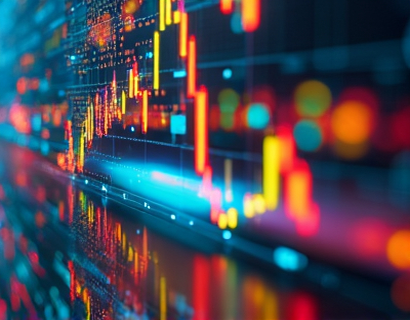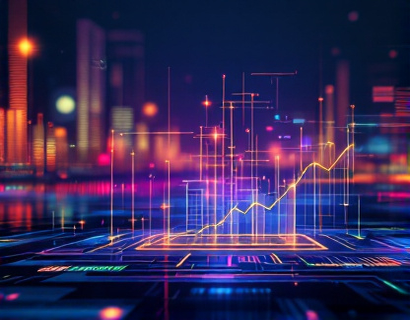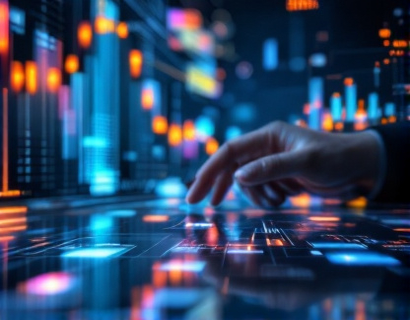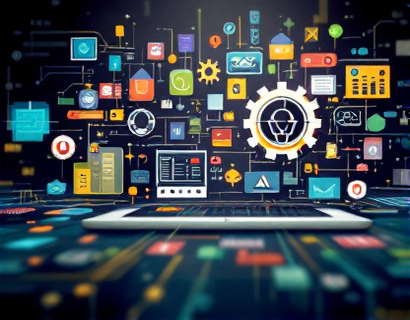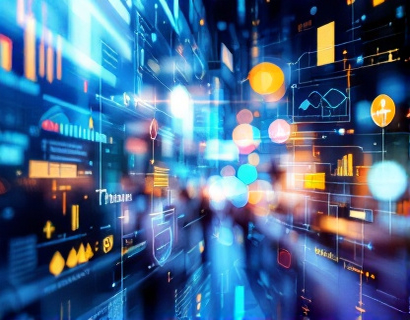AI and Crypto: Transforming Financial Landscapes with Innovative Tech Solutions
The intersection of artificial intelligence (AI) and cryptocurrency is revolutionizing the financial industry, creating a new paradigm where technology and finance converge to offer unprecedented solutions. This fusion is not just about enhancing existing systems but redefining the very fabric of how we perceive and interact with digital currencies and financial services. The integration of AI into the crypto ecosystem is paving the way for more secure, efficient, and user-friendly platforms, setting new industry standards and opening up a myriad of possibilities for both developers and users.
Enhanced Security Through AI
One of the most significant benefits of integrating AI into cryptocurrency is the enhancement of security measures. Traditional cryptographic methods, while robust, are not immune to sophisticated cyber threats. AI algorithms can analyze vast amounts of data in real-time, identifying patterns and anomalies that indicate potential security breaches. Machine learning models can adapt and evolve, continuously improving their ability to detect and mitigate threats. This proactive approach to security is crucial in a landscape where cyber attacks are becoming increasingly sophisticated.
For instance, AI-driven systems can monitor blockchain transactions for unusual activity, flagging potential fraud or manipulation. These systems can also enhance the security of private keys and wallet addresses, reducing the risk of unauthorized access. By leveraging AI, crypto platforms can offer a higher level of security, fostering trust among users and encouraging broader adoption of digital currencies.
Optimized Trading and Investment Strategies
The trading and investment landscape is another area where AI and crypto are making significant strides. AI algorithms can process and analyze vast datasets, including historical price data, market trends, and even social media sentiment, to predict future price movements. These predictive models can provide traders and investors with valuable insights, helping them make more informed decisions and potentially increasing their returns.
Automated trading bots powered by AI can execute trades at optimal times, following predefined strategies without emotional bias. This not only improves efficiency but also reduces the risk of human error. For retail investors, AI-driven platforms can demystify the complex world of crypto trading, making it more accessible and manageable. These tools can also help in portfolio management, suggesting diversification strategies and risk mitigation techniques.
Improved User Experience Through Personalization
The user experience in the crypto space is being significantly enhanced through AI-driven personalization. By analyzing user behavior and preferences, AI can tailor the interface and services to individual needs, creating a more intuitive and user-friendly environment. For example, a crypto exchange can use AI to recommend assets based on a user's trading history and risk tolerance, or to provide real-time alerts for market movements that align with the user's interests.
Personalization extends to customer support as well. AI chatbots can offer instant assistance, answering common queries and guiding users through complex processes. This not only improves user satisfaction but also reduces the workload on human support teams, allowing them to focus on more complex issues. A seamless and personalized user experience is crucial for retaining users and attracting new ones in a competitive market.
Smart Contracts and Decentralized Applications
AI is also playing a pivotal role in the development and execution of smart contracts and decentralized applications (dApps). Smart contracts, self-executing contracts with the terms directly written into code, can be enhanced with AI to handle more complex logic and decision-making processes. AI can analyze conditions and outcomes in real-time, ensuring that smart contracts operate efficiently and securely.
Decentralized applications, which run on blockchain networks, can leverage AI to offer advanced functionalities. For example, AI-powered dApps can provide predictive analytics, fraud detection, and personalized services within the decentralized ecosystem. This synergy between AI and blockchain technology is giving rise to innovative solutions that were previously unimaginable, such as decentralized finance (DeFi) platforms that offer lending, borrowing, and yield farming with enhanced security and efficiency.
Fraud Detection and Compliance
Fraud and regulatory compliance are significant challenges in the crypto industry. AI technologies can significantly mitigate these issues by providing robust monitoring and compliance solutions. AI algorithms can analyze transaction patterns and user behavior to identify suspicious activities, such as money laundering or market manipulation. These systems can flag potential violations in real-time, enabling platforms to take immediate action.
Regulatory compliance is another area where AI shines. The crypto space is subject to varying regulations across different jurisdictions, and keeping up with these changes can be daunting. AI can help platforms stay compliant by continuously monitoring regulatory updates and adjusting operations accordingly. This ensures that crypto businesses operate within legal boundaries, reducing the risk of penalties and enhancing their reputation.
Enhancing Market Liquidity
Market liquidity is crucial for the smooth functioning of crypto exchanges. AI can contribute to improving liquidity by optimizing order matching and execution processes. AI algorithms can analyze market depth, order book dynamics, and trader behavior to execute trades more efficiently, reducing slippage and improving transaction speeds. This not only benefits traders by providing better execution prices but also attracts more participants to the market, further enhancing liquidity.
Additionally, AI can help in the creation of liquidity pools, where multiple users contribute assets to a shared pool, facilitating easier and more efficient trading. These pools can be managed and optimized using AI, ensuring that they remain liquid and attractive to traders. By enhancing market liquidity, AI helps in building a more robust and stable crypto ecosystem.
Future Prospects and Challenges
The integration of AI and crypto holds immense potential, but it also comes with its own set of challenges. One of the primary concerns is the regulatory landscape. As AI and crypto continue to evolve, regulators are grappling with how to oversee these innovative technologies. Balancing innovation with consumer protection and financial stability is a delicate task that requires collaborative efforts from all stakeholders.
Another challenge is the technical complexity involved in integrating AI with blockchain technology. Developing scalable and efficient AI solutions that can operate on decentralized networks requires significant research and development. However, the ongoing advancements in both fields are gradually addressing these challenges, paving the way for more seamless integrations.
Looking ahead, the future of AI and crypto is bright. As AI algorithms become more sophisticated and blockchain technology matures, we can expect to see even more innovative applications. From decentralized AI models that operate independently on the blockchain to AI-driven financial instruments that offer new investment opportunities, the possibilities are vast. The key will be to foster a collaborative environment where developers, regulators, and users work together to harness the full potential of this transformative combination.
In conclusion, the fusion of AI and crypto is not just a technological advancement but a paradigm shift in the financial industry. By enhancing security, optimizing trading, personalizing user experiences, and improving market efficiency, this synergy is redefining what is possible in the digital finance space. As we continue to explore and leverage these technologies, the future of finance and technology looks more promising than ever.








